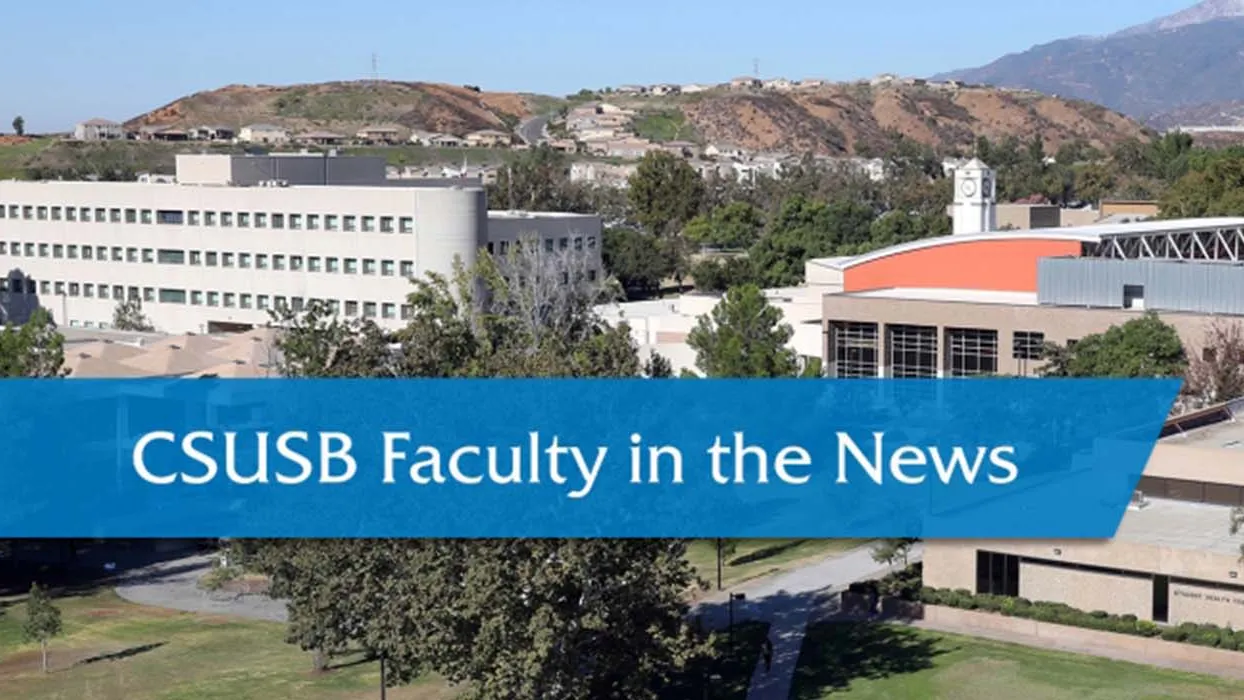NOTE: Faculty, if you are interviewed and quoted by news media, or if your work has been cited, and you have an online link to the article or video, please let us know. Contact us at news@csusb.edu.
CSUSB professor interviewed about the future of the Iran nuclear deal after the U.S. presidential election
Press TV
June 17, 2020
David Yaghoubian, CSUSB professor of history, was interviewed for a segment to discuss a news conference during which Iran’s foreign minister, Mohammad Javad Zarif, and Russia’s foreign minister, Segey Lavrov.
Both issued a strong condemnation of what they said was the Trump administration’s efforts to manipulate the United Nations and the Joint Comprehensive Plan of Action, the multi-national agreement to regulate Iran’s nuclear development program, to simultaneously extend the arms embargo against Iran past October, and enable the snapback of U.N. sanctions on Iran, effectively nullifying the JCPOA.
Yaghoubian was asked about the JCPOA’s future after the U.S. presidential election in November. President Donald Trump pulled the U.S. out of the agreement in May 2018, saying he wanted a stronger deal, and imposed economic sanctions on Iran to get it to the negotiation table.
“Whether Trump stays or goes I believe that the JCPOA is going to be maintained due to the fact that Russia and China maintain their veto in the (UN) Security Council, and so therefore the United States and Israel and to the extent that the E3 seek to destroy or nullify the JCPOA, they are going to be unsuccessful,” he said.
Watch the complete segment at “Iran FM: Breaking international law has become normal for U.S.”
‘Boogaloo’ movement is ‘a microcosm of the extremist world,’ CSUSB professor says
WIRED
June 18, 2020
The extremist “Boogaloo Bois” have been showing up online and in real life since the start of 2020, including a plot to spark unrest at George Floyd protests in Las Vegas with firebombs, and to the deaths of two law enforcement officers in the Bay Area.
Defining the movement and its adherents can be difficult.
“If there is anything that typifies the Boogaloo Bois, it’s that they’re quirky and violent, and run the gamut from joining the anti-police protestors to wanting to kill them,” says Brian Levin, director of the Center for the Study of Hate and Extremism at California State University, San Bernardino. “They’re a microcosm of the extremist world: fragmenting, intertwined, with unusual allies.”
They have no leaders, no local chapters, no manifesto or even unified ideology. That’s why their values are vague and flexible enough for them to glom onto and attempt to hijack any moment of tension that comes along—from Second Amendment anxiety to quarantine concerns to Black Lives Matter. Still, that doesn’t mean that the Boogaloo movement isn’t cause for concern, especially now that their level of violence is escalating.
In fact, being an amorphous blob might increase the Boogaloo movement’s chance of survival as they hit the public consciousness. The alt-right imploded largely due to infighting and having visible, organized memberships doxed after they tried to enter the mainstream. “The Boogaloo Bois have more in common with the post-Charlottesville soloist mass killers,” Levin says. Dispersing and relying on lone wolf actors to spark violence is an old rightwing extremist tactic meant to allow the group to endure scrutiny and censure, much like the Boogaloo movement’s shifting jargon.
Read the complete article at “The meme-fueled rise of a dangerous, far-right militia.”
CSUSB professor discusses extremist ‘Boogaloo’ movement
KRON TV (San Francisco)
June 17, 2020
Brian Levin, director of the Cal State San Bernardino Center for the Study of Hate and Extremism, was interviewed for a segment on the extremist “Boogaloo” movement and recent arrests of four of its adherents, including one charged with the killing of a federal agent and a Santa Cruz County sheriff’s deputy.
“This movement has spread by wildfire, it’s a movement for all with grievances against the government particularly those who are concerned about social unrest and extreme view of Second Amendment rights, and for the racist part of it, a racist Civil War,” Levin said.
He says after Charlottesville, many hate groups disbanded. He says the Boogaloo movement started to gain steam when these individuals with similar ideologies found each other online.
“We’re now seeing cells and groups that are radicalized in this ecosystem as well and what I worry about is when you have these informal associations, there may be some local organizing for cells or soloists, if they are not orchestrating something getting sustenance from other members of the group,” he said.
View the video segment and the related article at “Extremist movement ‘Boogaloo Boys’ on the rise across US.”
These news clips and others may be viewed at “In the Headlines.”
